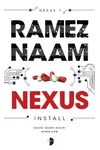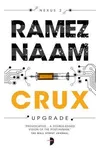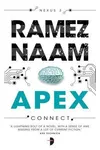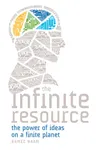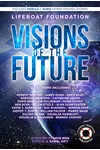Picture a Cairo-born visionary who traded coding at Microsoft for crafting mind-bending sci-fi—meet Ramez Naam! A computer scientist turned award-winning author and futurist, Naam weaves tales of human enhancement and technology’s wild potential. His Nexus Trilogy thrilled readers and snagged prestigious awards, making him a standout voice in science fiction’s bold exploration of tomorrow.
From his early days in Egypt to shaping the future through novels and non-fiction, Naam’s journey is as dynamic as his stories. Let’s dive into the life, works, and impact of this tech-savvy storyteller who’s redefining what it means to be human.
The Making of Ramez Naam
Born in Cairo, Egypt, to a Coptic Christian family, Ramez Naam moved to the United States at age three. His fascination with computers sparked early, tinkering with a Commodore VIC-20 at school. This passion led him to a 13-year stint at Microsoft, where he helped develop giants like Internet Explorer, Outlook, and Bing. Naam also founded Apex NanoTechnologies, a pioneering nanotechnology software company, cementing his tech credentials with nearly 20 patents in AI and machine learning.
Yet, Naam’s curiosity stretched beyond code. A self-described science junkie, he devoured sci-fi novels and pondered humanity’s future. Disillusioned by debates against human enhancement, he turned to writing, blending his tech expertise with a knack for storytelling to explore bold ideas about our potential.
Ramez Naam’s Unforgettable Stories
Naam’s fiction debut, Nexus (2012), kicked off his acclaimed Nexus Trilogy. Set in 2040, this techno-thriller follows Kaden Lane, a scientist refining a nano-drug that links human minds. Packed with espionage, ethical dilemmas, and Buddhist philosophy, Nexus won the 2014 Prometheus Award and was praised for its gritty realism. Its sequels, Crux (2013) and Apex (2015), deepened the saga, with Apex clinching the Philip K. Dick Award for its posthuman vision.
Beyond fiction, Naam’s non-fiction shines. More Than Human: Embracing the Promise of Biological Enhancement (2005) argues for technologies like brain-computer interfaces, earning the H.G. Wells Award. The Infinite Resource: The Power of Ideas on a Finite Planet (2013) tackles climate change and innovation, showcasing his knack for making complex science accessible. Naam’s style blends hard science with philosophical depth, crafting narratives that thrill while challenging readers to rethink humanity’s trajectory.
His works resonate for their plausibility—rooted in real research—and their moral ambiguity. Whether exploring mind-linking drugs or clean energy, Naam’s stories pulse with action, ideas, and a belief in human ingenuity to shape a better future.
Why Ramez Naam Matters
Ramez Naam’s impact spans tech, literature, and futurism. His Nexus Trilogy redefined postcyberpunk, blending cutting-edge science with human struggles, inspiring readers and writers to grapple with technology’s double-edged sword. As a Singularity University professor and clean energy investor, he shapes real-world innovation, advocating for sustainable solutions to global challenges.
Naam’s optimistic yet cautious lens—championing enhancement while warning of risks—makes him a vital voice in sci-fi and beyond. His ability to bridge lab research with gripping stories invites us to dream big but think critically about tomorrow.
- Born: Cairo, Egypt
- Key Works: Nexus, Crux, Apex, More Than Human, The Infinite Resource
- Awards: Prometheus Award (2014), Philip K. Dick Award (2015), H.G. Wells Award (2005)
Snag Nexus or More Than Human and dive into Ramez Naam’s thrilling blend of sci-fi and futurism! His worlds will leave you pondering what’s next for humanity.
